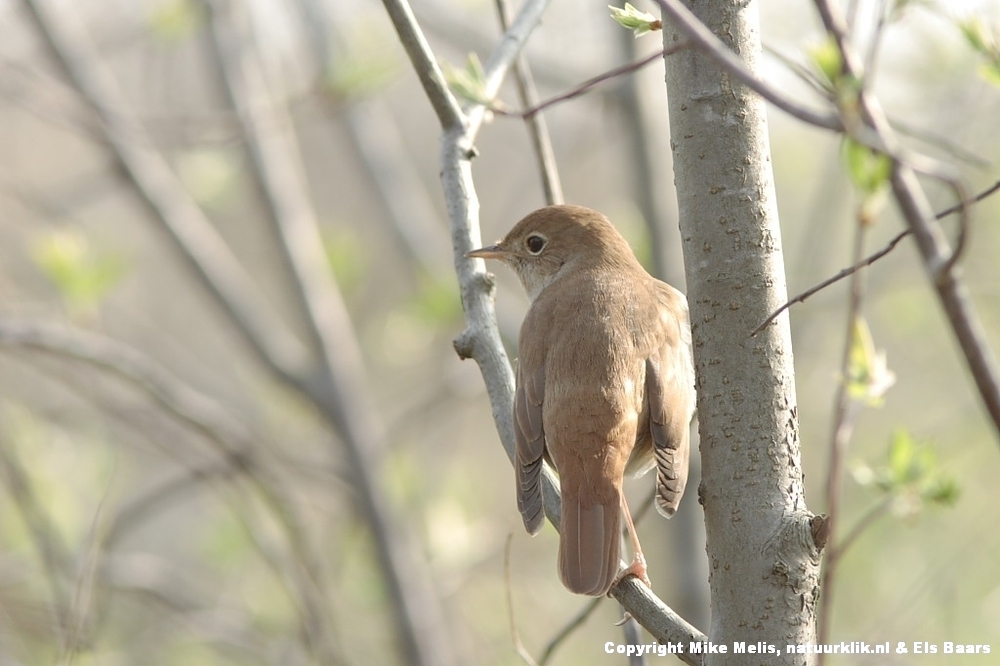Do you know why the nightingale is named after the night? In times past he was known as the ‘singingale’? After losing a singing competition this amazingly beautiful singer hid himself away in the bushes. His song is particularly magical in the silence of the night because all the other birds are quiet. This old story tells how the singingale became a nightingale.
For a long time all the animals lived together in peace and harmony. Slowly but surely differences between them became apparent and some animals felt they were better than others. The weaker animals felt the need for a leader. In this way the lion became king of the earth; the whale the emperor over the seas; and the eagle the ruler over the sky. But even this was not enough, because the animals also wanted to know who the best singer. Making a choice was difficult. There are so many birds who can sing beautifully. The blackbird who starts his concert before sunrise; the blackcap and its warm sounds; and the lark’s song of rejoicing.
So all the birds gathered together to sing their songs one by one. The screeching of the magpie was only just bearable. The cascading notes of the robin’s song touched one and all. Nobody enjoyed the common tern’s screaming sounds, but the finch’s singing met with general approval. However, every single bird fell silent and gave their full attention to the singingale who knew how beautifully he could sing his various melodies.
It took a week for every bird to sing his song. The jay and the jackdaw gave all the birds a ballot paper, so that each bird had one vote. However, although the nightingale knew he could be chosen as the best singer, he was a bit modest. He decided to cast a blank vote, because he thought it inappropriate to vote for yourself.
The Parliament of Owls had been called upon to count the votes carefully and then announce the top three singers. The birds saw how the tawny owl and the long-eared owl exchanged puzzled looks as they went through the votes and then consulted their president, the church owl, at length. Finally, the church owl settled on a prominent branch, looked at the gathering of birds with a severe look in his eyes and spoke: “Birds, it has been a beautiful week. I have heard songs I’ve never heard before. I have enjoyed myself. But… the voting has been very curious, to say the least. I shall now announce the results. There is one bird with zero votes and that is the singingale.”All the birds twittered together and laughed at the singingale: “Now aren’t you a dreadful singer, you haven’t even scored one vote. You are the worst singer of all the birds!” Humiliated and disillusioned, the singingale drooped on the spot and then flew off to hide among the dense undergrowth of thickets and stinging nettles to be on his own. This is where he has remained to this day.
“Silence, silence!”cried the church owl, “I will now continue with the results. We birds are strange and self-centred creatures – everyone has voted for himself! Every bird had one vote. So it appears that every bird has won. But that’s not possible. As president of the voting committee of wise owls my conclusion must, therefore, be that there is no winner. There is no single best singer among the birds!”
And what about the nightingale? He still lives in the impenetrable thickets and rarely appears. Being voted worst singer he still feels is unjust. That is why he only sings a simple modest song by day when other birds are singing. But when darkness falls and all the birds are asleep, the nightingale is happy again and sings in the silence of the night, giving his everything in the notes of his magnificent songs. And that is how he has come to be known as the nightingale ever since.
The nightingale is an inconspicuous rusty brown bird which likes to live in low-growing thickets, and preferably among brambles, seabuck thorn and stinging nettles. He is to be found throughout Europe. About 1500 are to be found In The Netherlands. It is a migrating bird which is here between mid-April and August. The male sings for about 6 to 7 weeks and then stops when the eggs hatch in order to look after them. Its food consists mainly of insects and caterpillars.

